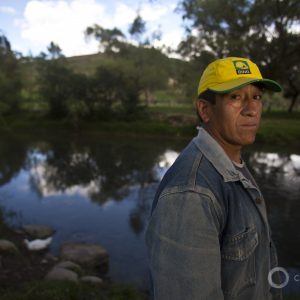The Stream, December 16: India Relaxes Stance On Indus Water Dispute
The Global Rundown
Officials in India showed willingness to participate in talks with Pakistan over disputed hydroelectric projects in the Indus River Basin, despite earlier objections this month. Scientists in the United States warned Congress that rising sea levels due to climate change could significantly alter efforts to restore the Florida Everglades. Hundreds of thousands of people in Texas were told not to drink their water because of potential contamination from a chemical leak. Dozens of countries pledged money to help the World Bank address poverty in the world’s poorest regions, including projects to secure water supplies. Resource managers in Sri Lanka said more cooperation is needed to reduce competition between farmers and wildlife for scarce water supplies.
“Given the will to address these matters through the appropriate mechanisms provided for in the Indus Waters Treaty, there is no reason why the technical design parameters on which Pakistan has raised objections cannot be sorted out by professional, technical experts from both sides.” –Vikas Swarup, spokesperson for India’s Ministry of External Affairs, referring to a conflict over hydropower projects in the Indus River Basin that India shares with Pakistan. An arbitration process to resolve the dispute was put on hold earlier this week after India accused the World Bank, which facilitates the process, of bias. Talks could begin again next month. (The Hindu)
In context: Read how the escalation in tensions over the Indus River comes amid growing water concerns in both India and Pakistan.
By The Numbers
320,000 people Number living in Corpus Christi, Texas who were told not to use their tap water after evidence surfaced that a chemical used in asphalt may have leaked into drinking water supplies on Thursday. Reuters
$75 billion Contributions pledged by 48 countries to the World Bank’s International Development Association, signalling a “pivotal step in the movement to end extreme poverty,” according to the bank. The money will help improve water systems for 45 million people globally over the next three years, among other projects. Reuters
Science, Studies, And Reports
Rising sea levels and temperatures caused by climate change could require water managers to make significant changes to current plans to restore the Florida Everglades, according to a report to the U.S. Congress. Saltwater intrusion into the vast wetland complex could necessitate more water storage in Lake Okeechobee and other reservoirs, but scientists warned that some areas of the Everglades may never recover. Sun Sentinel
In context: Political, financial, and ecological barriers block solutions to algal blooms and other water problems in South Florida.
On The Radar
Increasingly erratic rainfall in southern Sri Lanka means farmers and wildlife are more often competing for scarce water supplies. Adopting new agricultural practices and improving coordination between farmers and forest and wildlife managers, however, could help all parties adapt to the changing climate, officials say. Reuters
A news correspondent for Circle of Blue based out of Hawaii. She writes The Stream, Circle of Blue’s daily digest of international water news trends. Her interests include food security, ecology and the Great Lakes.
Contact Codi Kozacek





